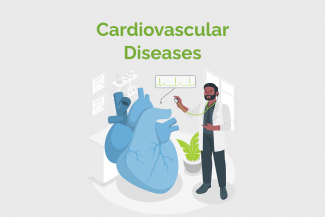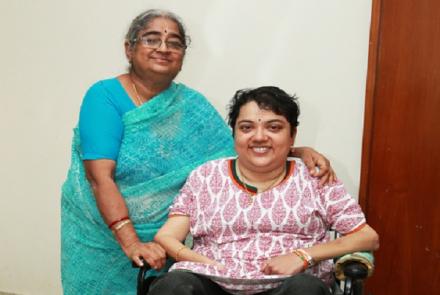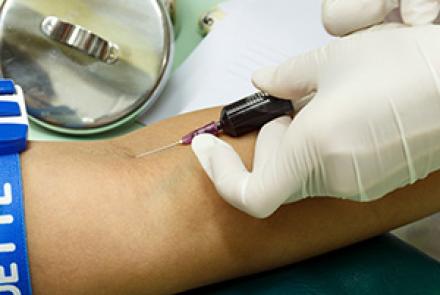
What causes heart disease
Smoking: Any amount of smoking, even light smoking or occasional smoking, damages the heart and blood vessels. Smoking lowers HDL cholesterol (good cholesterol), raises blood pressure and damages heart tissue.
High amounts of fat and cholesterol in the blood: When there is excess cholesterol (a fat-like substance) in your blood, it builds up in the walls of the arteries causing them to harden and narrow. This can slow down the flow of oxygen-carrying blood to the heart, leading to chest pains. If blood flow is completely restricted the patient has a heart attack.
High blood pressure: Blood pressure is the force of the blood pushing against the walls of the arteries. High blood pressure causes the arteries to weaken or narrow increasing the risk of rupture or clogging from particles of plaque that build up inside the arteries.
High amounts of sugar in blood due to diabetes: Blood sugar damages the blood vessels of the body, including those related to the heart.
Blood vessel inflammation: Risk factors like smoking or cholesterol can lead to inflammation of the blood vessels. This has been conncted to heart attacks.
Are you at risk of developing heart disease
Yes, if you
- Smoke
- Are overweight: This makes the heart work harder. Plus, it increases other risk factors like diabetes, high cholesterol and triglycerides
- Eat a high-fat diet: This leads to fat being deposited in the arteries, narrowing them and making them prone to blockage.
- Physically inactive: Like other muscles, the heart muscles need exercise. Plus, the lack of exercise leads to obesity and its related problems, like high blood pressure and diabetes, which increase likelihood of developing heart problems.
- Family history: Heart diseases often run in families. Studies show that genes play a role in heart disease. These genes get activated based on lifestyle and environmental factors such as stress, smoking, obesity etc.

















